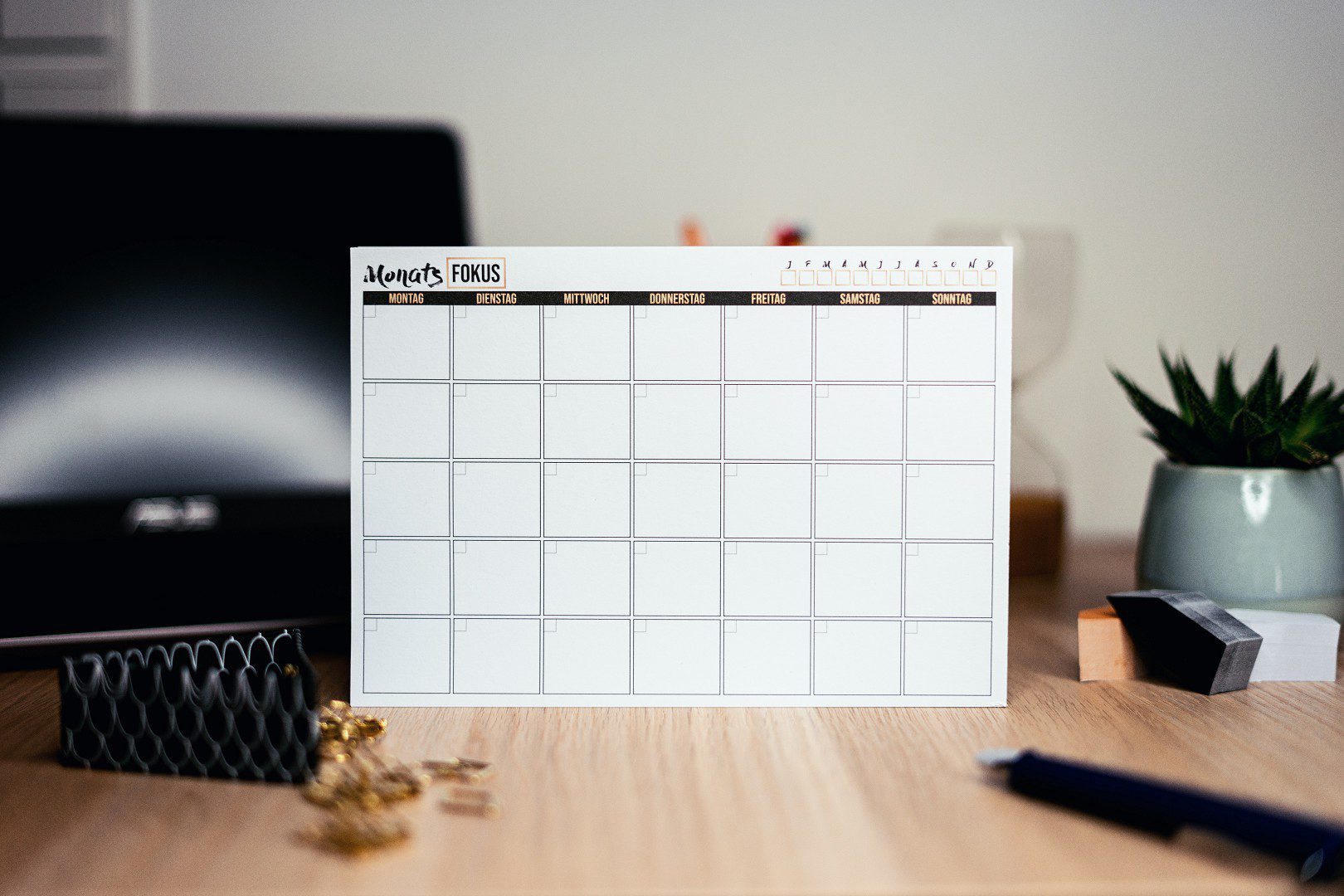Contents
- 1 Unlocking the Power of Auditory Learning: Techniques for Better Retention
- 2 Enhancing Memory Through Auditory Learning: Strategies That Work
- 3 The Science Behind Auditory Learning for Improved Retention
- 4 Amplify Your Learning Potential: Auditory Methods for Better Memory
- 5 Harnessing the Benefits of Auditory Learning: Tips for Improved Retention
- 6 Boosting Memory and Retention with Auditory Learning Techniques
- 7 Mastering the Art of Auditory Learning: Methods for Better Retention
- 8 Unleashing Your Memory’s Potential: Auditory Learning Strategies
- 9 Auditory Learning: A Key to Better Retention and Comprehension
- 10 Conclusion: Enhance Your Learning Journey with Auditory Methods for Better Retention
- 11 FAQs About Auditory Learning Methods for Better Retention
Unlocking the Power of Auditory Learning: Techniques for Better Retention
Have you ever wondered why some people have an uncanny ability to remember every word of a conversation or recall information effortlessly? It’s as if their memory is a steel trap, capturing every detail with precision. The secret to their exceptional memory may lie in the power of auditory learning.
Auditory learning, also known as learning through listening, is a method that taps into the natural ability of our brains to process and retain information through sound. While visual learning, such as reading or watching videos, is commonly used, auditory learning offers a unique approach that can greatly enhance our retention and comprehension.
Imagine being able to absorb information effortlessly, whether it’s during a lecture, a podcast, or even a casual conversation. By harnessing the benefits of auditory learning, you can unlock your memory’s potential and boost your learning journey.
In this article, we will explore a variety of auditory learning methods and strategies that can improve your retention and enhance your memory. From techniques for better comprehension to the science behind auditory learning, we will delve into the fascinating world of sound-based learning.
So, whether you’re a student looking to ace exams or a professional seeking to absorb information more effectively, join us as we uncover the secrets of auditory learning. Get ready to amplify your learning potential and unleash the power of your memory. Let’s dive in and discover the transformative impact of auditory learning methods for better retention.
Enhancing Memory Through Auditory Learning: Strategies That Work
When it comes to retaining information, auditory learning can be a powerful tool. By engaging our sense of hearing, we can enhance our memory and improve our ability to recall important details. In this section, we will explore some effective strategies that can help you make the most of auditory learning.
1. Utilize Audio Recordings
One of the simplest yet most effective ways to engage in auditory learning is by utilizing audio recordings. Whether it’s listening to a lecture, a podcast, or an audiobook, audio recordings allow you to absorb information through your ears. You can listen to these recordings while commuting, exercising, or even during your downtime. By incorporating audio into your daily routine, you can maximize your learning potential.
2. Repeat and Recap
Repetition is key when it comes to memory retention. After listening to an audio recording, take the time to repeat and recap the information in your own words. This process helps reinforce the neural connections in your brain, making it easier for you to recall the information later on. Additionally, summarizing the key points in your own words helps you understand and internalize the content more effectively.
3. Engage in Active Listening
Listening actively involves being fully present and focused on the audio content. Avoid distractions and actively engage with the material by taking notes, asking questions, or discussing the content with others. This active participation enhances your comprehension and retention of the information.
4. Create Mnemonic Devices
Mnemonic devices are memory aids that help you remember information more easily. When using auditory learning, you can create mnemonic devices that are based on sound. For example, you can create a catchy rhyme or song to remember a list of items or key concepts. These mnemonic devices tap into your auditory memory and make the information more memorable.
5. Use Visualization Techniques
While auditory learning primarily focuses on the sense of hearing, incorporating visualization techniques can further enhance memory retention. As you listen to audio content, try to create mental images or visual representations of the information. This dual encoding process, combining auditory and visual cues, strengthens the memory traces in your brain.
By incorporating these strategies into your auditory learning practice, you can significantly improve your memory retention. Remember to utilize audio recordings, repeat and recap the information, engage in active listening, create mnemonic devices, and use visualization techniques. These techniques will not only enhance your learning journey but also set the stage for the next topic: “The Science Behind Auditory Learning for Improved Retention.”

The Science Behind Auditory Learning for Improved Retention
Auditory learning, also known as learning through hearing, has been proven to be a powerful tool for improving retention. This section will delve into the science behind why auditory learning is so effective and how it can enhance memory.
The Role of the Auditory Cortex
When we hear information, it is processed in the auditory cortex of our brains. This region is responsible for receiving and interpreting sound signals, allowing us to understand spoken words and other auditory stimuli. Research has shown that the auditory cortex is closely connected to the hippocampus, which plays a crucial role in memory formation and retrieval.
The Power of Sound Association
One reason why auditory learning is so effective is its ability to create strong associations in our minds. When we hear information, our brains naturally link it to other sounds, emotions, or memories that we have previously experienced. This association helps to solidify the new information in our memory, making it easier to recall later on.
Utilizing Rhythms and Patterns
Another aspect of auditory learning that enhances retention is the use of rhythms and patterns. Our brains are wired to recognize and remember patterns, and auditory learning takes advantage of this innate ability. For example, when learning a new language, listening to native speakers and imitating their rhythm and intonation can greatly improve retention and pronunciation.
Incorporating Multisensory Learning
Auditory learning can also be combined with other sensory modalities to create a more robust learning experience. For instance, listening to a podcast while following along with a transcript or visual aids can engage both the auditory and visual senses, increasing comprehension and retention.
Key Takeaways
- Auditory learning taps into the auditory cortex and its connection to the hippocampus, enhancing memory formation and retrieval.
- Sound association helps to create strong connections in our minds, making information easier to remember.
- Rhythms and patterns in auditory learning take advantage of our brain’s natural ability to recognize and remember patterns.
- Combining auditory learning with other sensory modalities, such as visuals, can further enhance retention and comprehension.
With a solid understanding of the science behind auditory learning, we can now explore specific techniques and strategies that can amplify our learning potential and improve retention. In the next section, we will discuss various auditory methods that can be employed to boost memory and retention.
Amplify Your Learning Potential: Auditory Methods for Better Memory
When it comes to learning and retaining information, auditory methods can be incredibly effective. By engaging your sense of hearing, you can enhance your memory and improve your overall retention. Here are some techniques and strategies to help you unlock the power of auditory learning:
1. Listen to Audio Recordings
One of the simplest ways to incorporate auditory learning into your study routine is by listening to audio recordings. Whether it’s a lecture, podcast, or audiobook, hearing the information can reinforce your understanding and help you remember key points. For example, if you’re studying a foreign language, listening to native speakers can improve your pronunciation and vocabulary retention.
2. Repeat Information Out Loud
Repeating information out loud can also aid in memory retention. By vocalizing what you’re learning, you engage both your auditory and vocal systems, reinforcing the information in your mind. This technique is particularly useful when memorizing facts, formulas, or vocabulary. For instance, if you’re trying to remember a list of historical dates, saying them aloud can help commit them to memory.
3. Create Mnemonic Devices
Mnemonic devices are memory aids that help you remember information by associating it with something more memorable. When using auditory methods, you can create mnemonic devices based on sound patterns or rhymes. For example, if you’re trying to remember the order of the planets, you could create a phrase like “My Very Eager Mother Just Served Us Nachos” to represent Mercury, Venus, Earth, Mars, Jupiter, Saturn, Uranus, and Neptune.
4. Engage in Group Discussions
Participating in group discussions can be a powerful auditory learning tool. By actively listening to others and engaging in conversation, you reinforce your understanding of the topic at hand. Additionally, hearing different perspectives and explanations can deepen your comprehension and help you retain information more effectively.
By incorporating these auditory learning methods into your study routine, you can amplify your learning potential and improve your memory retention. Listening to audio recordings, repeating information out loud, creating mnemonic devices, and engaging in group discussions all contribute to a more immersive and effective learning experience. In the next section, we will explore additional tips and strategies to harness the benefits of auditory learning for improved retention.

Harnessing the Benefits of Auditory Learning: Tips for Improved Retention
Auditory learning is a powerful tool that can significantly enhance memory and retention. By utilizing auditory methods, you can tap into your brain’s natural ability to process and retain information through sound. Here are some tips to help you harness the benefits of auditory learning for improved retention:
1. Utilize Audio Recordings and Lectures
One of the most effective ways to engage in auditory learning is by listening to audio recordings and lectures. Whether it’s a recorded lecture from your professor or an audiobook on a particular subject, listening to the information can help you absorb and retain it better. Make sure to find a quiet environment where you can fully concentrate on the audio.
2. Create and Listen to Study Guides
Another useful technique is creating your own study guides in audio format. By recording key concepts, summaries, and important details, you can listen to them repeatedly to reinforce your understanding and memory. This method is particularly helpful for subjects that require memorization, such as vocabulary or formulas.
3. Engage in Group Discussions and Debates
Participating in group discussions and debates allows you to learn through auditory means. By actively listening to others’ perspectives and arguments, you can absorb new information and develop a deeper understanding of the topic. Engaging in conversations also helps reinforce your own knowledge by explaining concepts to others.
4. Use Mnemonic Devices
Mnemonic devices are memory aids that help you remember information more easily. Many mnemonic devices are auditory-based, such as acronyms, rhymes, or songs. For example, to remember the order of the planets, you can use the mnemonic “My Very Educated Mother Just Served Us Noodles” (Mercury, Venus, Earth, Mars, Jupiter, Saturn, Uranus, Neptune).
5. Listen to Podcasts and Audio Lessons
Podcasts and audio lessons provide an excellent opportunity to learn and retain information through auditory means. Choose podcasts or audio lessons that align with your interests or the subjects you’re studying. By actively listening and taking notes, you can reinforce your understanding and retention of the material.
Harnessing the benefits of auditory learning can significantly improve your memory and retention. By utilizing audio recordings, creating study guides, engaging in group discussions, using mnemonic devices, and listening to podcasts, you can enhance your learning journey and retain information more effectively. In the next section, we will explore additional techniques and strategies to further amplify your auditory learning potential.
Boosting Memory and Retention with Auditory Learning Techniques
When it comes to enhancing memory and retention, auditory learning techniques can be incredibly effective. By engaging our sense of hearing, we can tap into the power of sound to improve our ability to remember and understand information. Here are some strategies and techniques that can help boost your memory and retention through auditory learning:
1. Record and listen to lectures or presentations
One of the most straightforward ways to utilize auditory learning is by recording and listening to lectures or presentations. By capturing the audio of a class or meeting, you can review the material at your own pace and reinforce your understanding of the subject matter. This technique allows you to focus solely on listening, without the distractions of taking notes or worrying about missing important details.
2. Use mnemonic devices
Mnemonic devices are memory aids that help us remember information by associating it with something familiar. When it comes to auditory learning, you can create mnemonic devices by turning information into catchy songs or rhymes. For example, if you need to remember a list of items, you can create a jingle that incorporates each item into the lyrics. The rhythm and melody of the song will make it easier for your brain to recall the information.
3. Engage in active listening
Active listening involves fully concentrating on and engaging with the auditory information you are receiving. To enhance your memory and retention, practice active listening by paying close attention to the speaker’s tone, emphasis, and intonation. Take notes on key points and ask questions to clarify your understanding. By actively engaging with the material, you are more likely to retain and comprehend the information.
4. Utilize audio books and podcasts
Audio books and podcasts are excellent resources for auditory learners. Instead of reading a book or article, you can listen to the content being narrated. This allows you to absorb information through your sense of hearing while engaging in other activities, such as commuting or exercising. Audio books and podcasts also often include sound effects and different voices, which can make the learning experience more enjoyable and memorable.
By incorporating these auditory learning techniques into your study routine or daily life, you can significantly enhance your memory and retention of information. Whether you record and listen to lectures, create mnemonic devices, practice active listening, or utilize audio books and podcasts, embracing auditory learning methods can unlock your full learning potential. In the next section, we will explore additional tips and strategies to further harness the benefits of auditory learning for improved retention and comprehension.

Mastering the Art of Auditory Learning: Methods for Better Retention
Auditory learning is a powerful tool that can significantly enhance memory and retention. By utilizing specific methods and techniques, individuals can unlock the full potential of auditory learning and improve their ability to remember and comprehend information. Here are some effective methods for mastering the art of auditory learning:
1. Active Listening
Active listening is a key component of auditory learning. To actively listen, focus your attention on the speaker or audio source, eliminating distractions and engaging with the material. Take notes while listening to reinforce your understanding and retention. This method helps to reinforce information in your mind and improves overall comprehension.
2. Repetition and Recapitulation
Repetition is a proven method for better retention. After listening to an audio source, recapitulate the main points in your own words. This not only reinforces your understanding but also helps to transfer the information from short-term to long-term memory. By repeating and summarizing the key concepts, you are more likely to remember them in the future.
3. Utilize Mnemonic Techniques
Mnemonic techniques are memory aids that can enhance retention. Create acronyms, rhymes, or associations with the information you are learning. For example, if you are trying to remember a list of items, you can create a memorable acronym using the first letter of each item. This technique helps to encode the information in a way that is easier to recall.
4. Engage in Discussion or Debate
Engaging in discussions or debates about the topic you are learning can greatly enhance retention. By actively participating in conversations, you are reinforcing your understanding of the material and processing it at a deeper level. Additionally, hearing different perspectives and arguments can help you form stronger connections to the information.
5. Use Audiovisual Aids
Incorporating visual aids alongside auditory learning can further improve retention. Use diagrams, charts, or videos that complement the audio material. This combination of visual and auditory stimuli enhances memory by providing multiple pathways for encoding and retrieval.
These methods for mastering auditory learning can significantly improve your retention and comprehension of information. By actively listening, utilizing repetition and recapitulation, employing mnemonic techniques, engaging in discussions, and incorporating audiovisual aids, you can maximize the benefits of auditory learning. In the next section, we will explore additional tips and strategies to further enhance your learning journey.
Unleashing Your Memory’s Potential: Auditory Learning Strategies
When it comes to retaining information, auditory learning can be a powerful tool. By engaging your sense of hearing, you can enhance your memory and improve your overall retention. In this section, we will explore some effective auditory learning strategies that can help you unleash your memory’s potential.
1. Utilize Audio Recordings
One of the most effective ways to leverage auditory learning is by utilizing audio recordings. Whether it’s recording lectures, conversations, or even reading materials, listening to recorded audio can reinforce your understanding and retention. For example, if you’re studying for an exam, you can record yourself reading your notes and listen to them while commuting or doing chores. This allows you to absorb the information in a different context, reinforcing your memory.
2. Engage in Active Listening
Active listening is a crucial skill for auditory learners. Instead of passively hearing information, actively engage with the content by focusing on key points, taking notes, and asking questions. This active involvement helps to solidify the information in your memory and enhances your retention. For instance, when listening to a podcast or attending a lecture, take notes on important concepts and summarize them in your own words. This not only helps you remember the information but also improves your comprehension.
3. Utilize Mnemonic Devices
Mnemonic devices are memory aids that help you remember information through association. When it comes to auditory learning, you can create mnemonic devices using sound cues. For example, if you’re trying to remember a list of items, you can create a memorable phrase or jingle that incorporates the first letter of each item. This technique not only engages your auditory sense but also provides a unique and memorable way to recall information.
By incorporating these auditory learning strategies into your study routine, you can unlock your memory’s potential and improve your retention. From utilizing audio recordings to engaging in active listening and utilizing mnemonic devices, there are various techniques you can employ to enhance your auditory learning experience. In the next section, we will explore additional tips and techniques to further harness the benefits of auditory learning.

Auditory Learning: A Key to Better Retention and Comprehension
Auditory learning is a powerful technique that can significantly enhance your retention and comprehension abilities. By engaging your sense of hearing, you can tap into a different mode of learning that complements visual and kinesthetic methods. Here are some effective auditory learning methods that can help you improve your retention:
1. Record and Listen to Lectures or Presentations
One of the most effective ways to engage in auditory learning is to record lectures or presentations and listen to them later. This allows you to revisit the information and reinforce your understanding. By listening to the audio, you can focus on key concepts, take notes, and review the material at your own pace.
2. Use Audiobooks or Podcasts
Audiobooks and podcasts are excellent resources for auditory learners. You can listen to educational content on a wide range of topics, from history to science, while engaging in other activities like exercising or commuting. This multitasking approach allows you to make the most of your time and absorb information effortlessly.
3. Engage in Group Discussions or Study Groups
Participating in group discussions or study groups can be highly beneficial for auditory learners. By actively listening to others’ perspectives and explanations, you can gain new insights and reinforce your understanding of the subject matter. Additionally, explaining concepts to others can help solidify your knowledge and improve retention.
4. Use Mind Maps or Concept Maps
Mind maps or concept maps are visual tools that can be combined with auditory learning to enhance retention. As you listen to lectures or presentations, create a visual representation of the information using keywords, connecting ideas, and adding relevant images or symbols. This combination of auditory and visual learning can improve comprehension and memory recall.
By incorporating these auditory learning methods into your study routine, you can unlock your full learning potential and improve retention. The next section will delve into additional strategies that can further amplify your memory and comprehension abilities.
Conclusion: Enhance Your Learning Journey with Auditory Methods for Better Retention
Learning is a lifelong journey, and finding effective strategies to enhance memory and retention is crucial. Auditory learning methods offer a powerful tool for improving our ability to retain information. By engaging our sense of hearing, we can tap into the potential of our brain and unlock new levels of learning.
Throughout this article, we have explored various techniques and strategies for harnessing the benefits of auditory learning. Now, let’s summarize the key takeaways and provide you with some creative and useful tips to incorporate auditory methods into your learning journey.
Tips for Incorporating Auditory Learning into Your Routine
- Utilize audio resources: Take advantage of audiobooks, podcasts, and online lectures to reinforce your learning. Listen to them while commuting, exercising, or doing household chores.
- Record and listen to yourself: Record key information or important concepts in your own voice. Play it back to reinforce your understanding and retention.
- Engage in discussions and debates: Participate in group discussions or debates where you can actively listen and engage with others. This will help you retain information through auditory processing and critical thinking.
- Create mnemonic devices: Use rhymes, songs, or acronyms to remember complex information. These auditory cues can significantly improve retention.
- Practice active listening: When listening to lectures or audio resources, actively take notes and summarize the content in your own words. This will reinforce your understanding and retention.
Unlock the Power of Auditory Learning
Auditory learning is a valuable tool that can enhance memory and retention. By incorporating these tips into your learning routine, you can tap into the potential of auditory methods and unlock new levels of learning. Remember, everyone learns differently, so experiment with different techniques to find what works best for you.
So, embark on your learning journey with confidence, knowing that auditory learning methods can amplify your learning potential and help you retain information more effectively. Embrace the power of sound, and let your ears guide you to new heights of knowledge and understanding.
FAQs About Auditory Learning Methods for Better Retention
Can auditory learning really improve my memory and retention?
Absolutely! Auditory learning methods have been proven to enhance memory and retention. By engaging your sense of hearing, you can tap into a powerful learning channel that helps you absorb and retain information more effectively.
What are some effective auditory learning techniques I can try?
There are several auditory learning techniques you can incorporate into your study routine. Some popular ones include recording and listening to lectures or study materials, using audio books or podcasts to learn new concepts, and participating in group discussions or study sessions where you can engage in verbal exchange of information.
How can I make the most of auditory learning methods?
To maximize the benefits of auditory learning, it’s important to create a conducive environment. Find a quiet space where you can focus on the audio material without distractions. Take notes while listening to reinforce your understanding, and try repeating key information out loud to reinforce memory retention.
Are there any tips for improving my auditory learning experience?
Absolutely! Here are a few tips to enhance your auditory learning journey:
- Use headphones or earphones to minimize external noise and improve focus.
- Experiment with different audio formats, such as podcasts, audiobooks, or recorded lectures, to find what works best for you.
- Break down complex information into smaller, digestible chunks to aid comprehension and retention.
- Engage in active listening by asking questions, summarizing what you’ve heard, or discussing the material with others.
Remember, everyone learns differently, so don’t be afraid to try different techniques and find what works best for you.

0 Comments